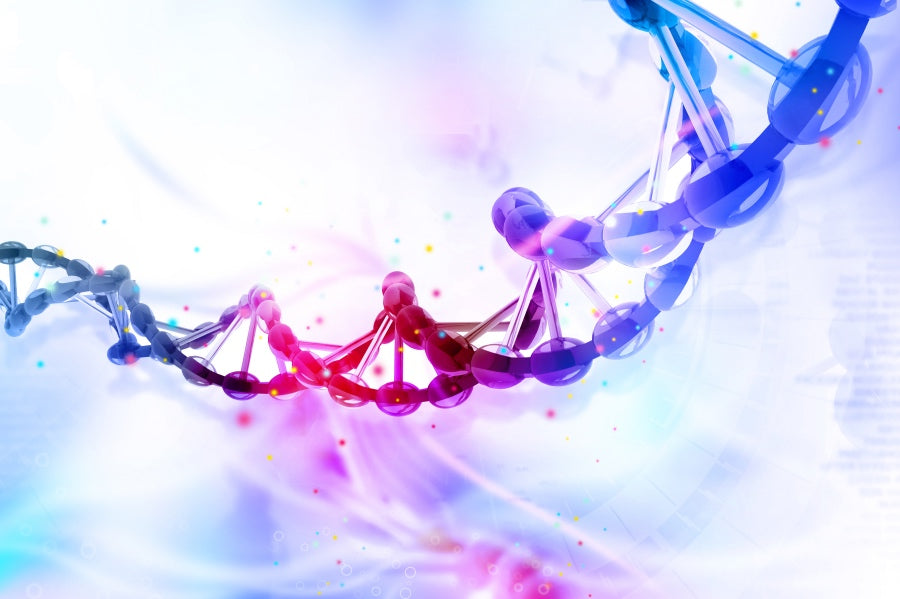
The Health Benefits of Mushrooms
Some mushrooms are poisonous. Some are hallucinogenic. And some appear to offer some pretty amazing health benefits. Which explains why mushrooms have been getting quite a bit of attention these days. And as you would expect, many new products with mushrooms are popping up left and right. So today I’m going to share what we know about the health benefits of mushrooms from both an anecdotal and a scientific perspective. And without giving too much away, the research looks promising!
What are mushrooms?
Mushrooms are essentially the “fruit” of a fungus. However, instead of seeds, mushrooms create and spread spores to reproduce. These spores are microscopic and found under the “cap” of the mushroom. You know the part that looks like gills.
Bioactive Compounds in Mushrooms
You’re probably familiar with white, crimini, and portobello mushrooms. These are most commonly found in grocery stores. And while these mushrooms are delicious and nutritious, there are others that have been used for centuries in many cultures more for their healing or “medicinal” powers. And these benefits come from what science calls “bioactive compounds.”
Bioactive compounds go beyond nutrition. They’re akin to the “active ingredients” in pharmaceutical drugs–except they’re made from nature. They’re what causes a physiological or cellular response in your body. And a little goes a long way, which is why they’re typically found in small concentrations. Some well-known bioactive compounds in mushrooms that you may have heard of include beta-glucans, terpenes, and phenols.
And while it’s clear more research is needed, the benefits suggested by numerous animal and human studies thus far include the potential to:

- Prevent and treat cancer
- Reduce inflammation
- Boost the immune system
- Protect the liver
- Regulate cholesterol levels
- Prevent and repair oxidative stress
- Protect the brain from degeneration
- Regulate blood sugar and prevent type 2 diabetes
- Prevent and treat viral and bacterial infections
Popular Medicinal Mushrooms
While there are many species of “medicinal” mushrooms, there are a handful that stand out from the bunch. These include:- Reishi: Reishi mushrooms grow on hardwood trees throughout many warm parts of the world. They are most often consumed to help boost the immune system. However, many people also turn to them to help ease stress and improve their sleep.
- Turkey Tail: These mushrooms look just like their name–turkey tails–and grow throughout North America on fallen trees and wood stumps. Animal studies suggest that one of the key bioactive compounds in turkey tails is capable of preventing the growth and spread of cancerous tumors.
- Shiitake: Shiitakes are native to Asia, but they can easily grow in many places. And they’re commonly used in culinary dishes, unlike most other medicinal mushrooms. In addition to their popular immune boosting application, animal studies also suggest their phenolic compounds may help prevent the buildup of plaque in your arteries.
- Chaga: Chaga has been gaining popularity in more recent years. It grows wild in cooler regions throughout the world. It’s utilized for stimulating the immune system against pathogens and cancer. It’s also a good source of potent antioxidants that essentially slow down the aging process and help prevent disease.
- Cordyceps: Cordyceps has a long-standing reputation for boosting energy as well as libido. Plus, animal studies show promising results in the prevention and treatment of diabetes.
- Maitake: Maitake mushrooms are most often found growing in clusters surrounding oak trees. They have a mild flavor, which makes them suitable to cook with. However, maitakes stand out most for their anticancer effects.
- Lion’s Mane: Lion’s mane mushrooms grow on broad leaf trees in mild temperatures throughout the world. In addition to being used to support immune health, new research suggests the consumption of Lion’s Mane may help reduce anxiety and depression as well as promote healthy nerve cells.
How to Consume Medicinal Mushrooms
Most medicinal mushrooms can be purchased dried. Either whole, ground into a powder, or added to a variety of teas, coffees, or nutritional supplements. However, it’s important to recognize that the concentration and effectiveness of the bioactive compounds found in medicinal mushrooms and subsequent products depends on a variety of factors, including the species, the growth stage at time of harvest, the part of the mushroom harvested, and the method of preparation among many others. For instance, some bioactive compounds are found in the spores while others are found in the flesh of the fruiting body.
Therefore, if you’re seeking a specific benefit, you need to read the fine print or work with a professional. The more delicate tasting mushrooms, such as shiitake and maitake, can simply be sauteed or added to soups or stir-fries. Dried mushrooms can also be added to soups. I personally love adding them when I’m making bone broth. And powders can be added to tea or coffee as well as smoothies. In addition, tinctures of medicinal mushrooms are available. Essentially, the bioactive compounds are extracted using a solvent. And in some cases the tinctures may be more potent than the mushroom itself.
The Bottom Line
Mushrooms are packed with naturally occurring compounds that are prized in many cultures for their ability to heal the body. And the research performed thus far has helped to substantiate these claims, although more human research is needed. So...if you’re generally in good health, I’m all for adding mushrooms to your daily diet to take advantage of their preventive nature. However, if you’re battling chronic disease and would like to explore medicinal mushrooms, I highly recommend working with a naturopath or functional medicine doctor. They will help you identify which species and products would be most beneficial.
Keep thinking Big and living BOLD!








